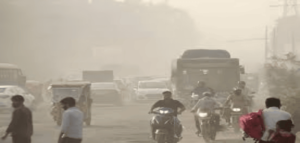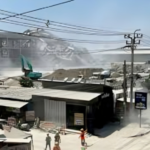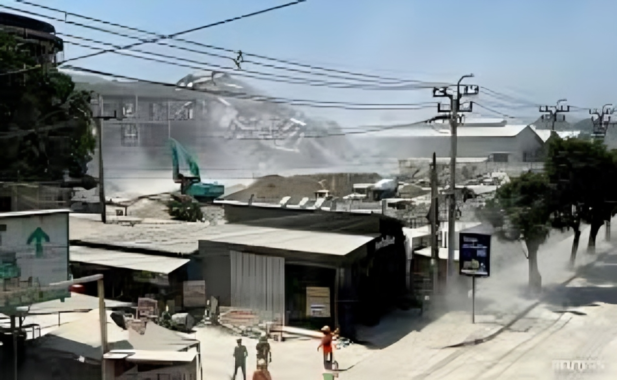
New Delhi: In light of the worsening air quality (Delhi AQI) in Delhi-NCR, the Commission for Air Quality Management (CAQM) has activated Stage IV of the Graded Response Action Plan (GRAP).
This decision comes as Delhi’s Air Quality Index (AQI) reached alarming levels, climbing to 441 by 4 PM on Sunday and escalating further to 457 by 7 PM, according to the Central Pollution Control Board (CPCB).
Stage IV of GRAP introduces stricter pollution control measures to combat the severe air pollution crisis. Here’s what’s being implemented:
- Educational Institutions: Physical classes for all students, except for those in Classes 10 and 12, are suspended.
- Truck Restrictions: Trucks, except those carrying essential commodities or services, are prohibited from entering Delhi. However, trucks running on LNG, CNG, electric power, or BS-VI diesel will be allowed.
- Light Commercial Vehicles: Non-EV, non-CNG, and below BS-VI diesel vehicles registered outside Delhi are banned from entering unless carrying essential goods or services.
- Medium and Heavy Goods Vehicles: Diesel vehicles below BS-VI standards registered in Delhi are prohibited from operating, except those involved in essential services.
- Work-from-Home Guidelines: NCR state governments, including Delhi, may permit 50% of employees in government, municipal, and private offices to work from home.
- Additional Emergency Measures: Authorities may consider closing colleges, suspending non-emergency commercial activities, imposing restrictions on vehicle operations, or even implementing the odd-even vehicle rule to further reduce vehicular emissions.
- Central Government Employees: The central government will decide whether to allow its employees to work remotely.
Citizens are urged to adhere to the guidelines and cooperate in ensuring effective implementation.
Vulnerable groups, including children, the elderly, and individuals with respiratory or chronic health conditions, are advised to stay indoors and avoid outdoor activities as much as possible.
These measures are critical to slowing the deterioration of air quality and safeguarding public health during this environmental crisis.
The success of these actions depends on the collective efforts of both authorities and citizens.













